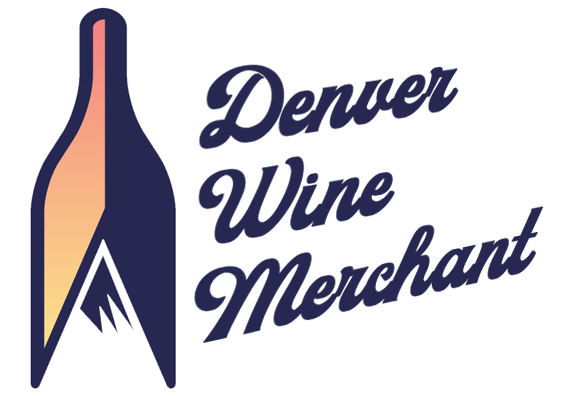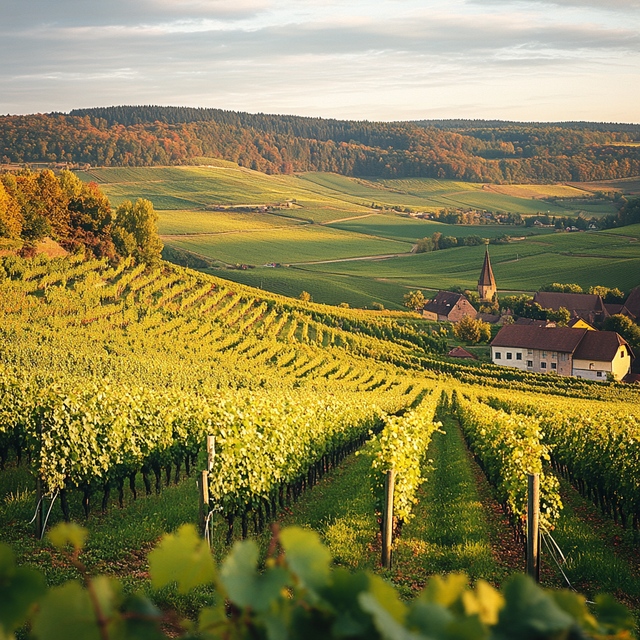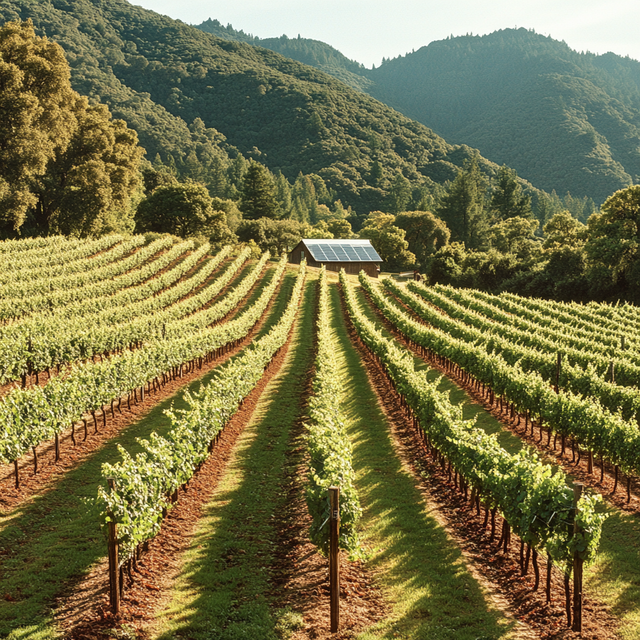The Pfalz, a region in western Germany, is known for its diverse range of wines, particularly its dry Rieslings. The area's rolling hills and varied soil types, including sandstone, loess, and limestone, create a terroir that is often more generous than the steep slate slopes of the Mosel. While Riesling is a focus, the Pfalz also produces excellent Pinot Noir, and a range of other varieties. The wines from this area are often known for their rich texture, vibrant acidity, and a core of pure fruit, giving them a clear sense of the place.
Germany - Pfalz
Sustainable vineyard farming is an environmentally conscious approach that prioritizes long-term ecological balance, economic viability, and social responsibility. Unlike organic farming, sustainable practices do not necessarily exclude synthetic chemicals, but rather focus on minimizing their usage, carefully managing resources like water and energy, protecting biodiversity, and reducing waste and carbon footprint. Wineries employing sustainable methods often integrate modern technology and traditional practices to improve efficiency and maintain healthy vineyards. Certifications like "SIP Certified" or "LIVE Certified" help validate sustainability efforts. However, sustainable farming differs distinctly from organic, as sustainable producers may use synthetic inputs in moderation if deemed necessary for the overall health and productivity of their vineyards.




